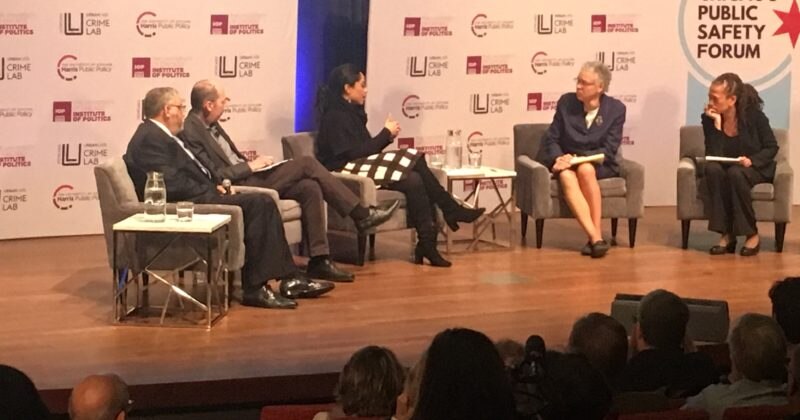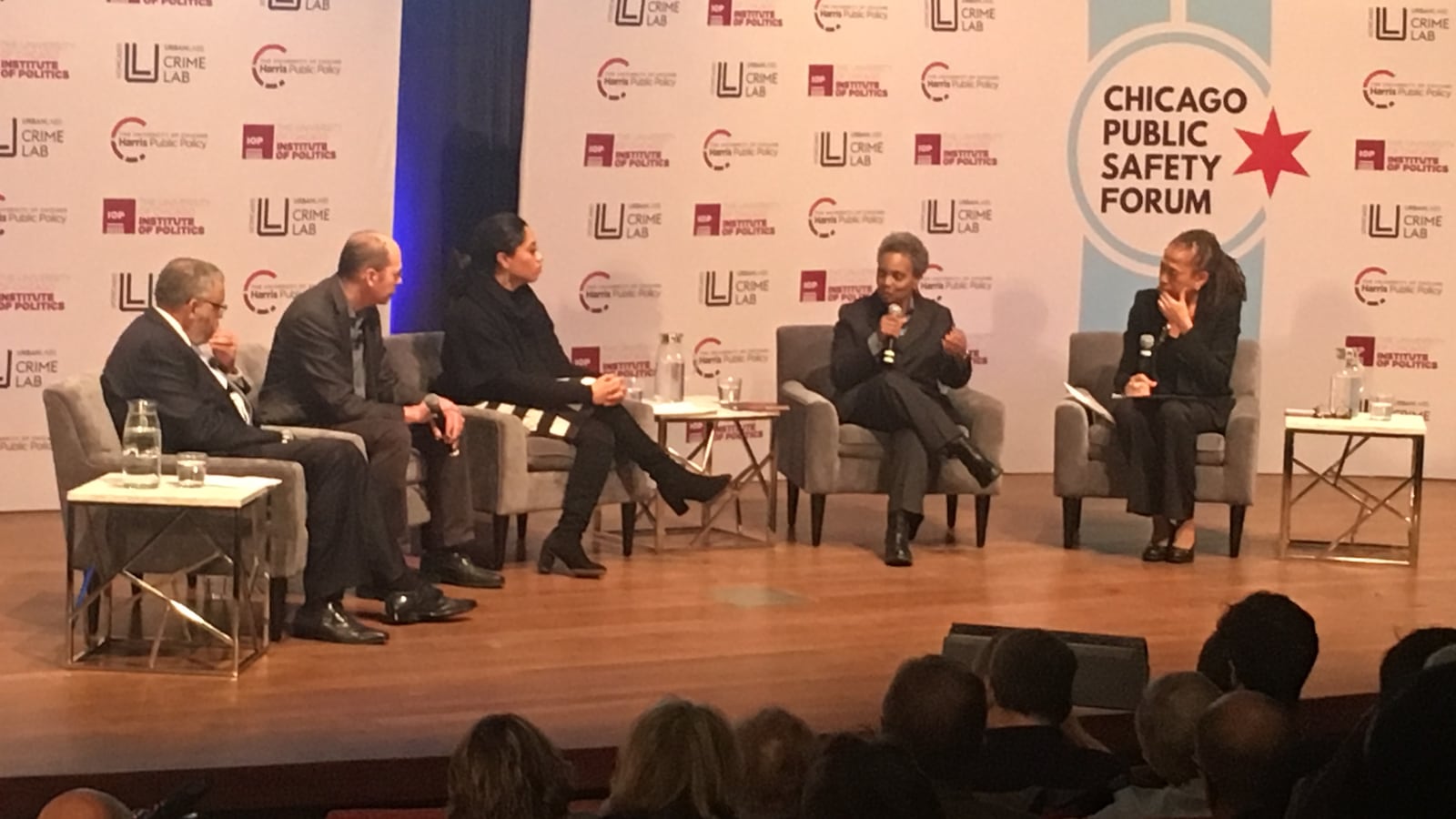On the same day that activists interrupted a City Council vote on a controversial $95 million police training academy, mayoral contender Lori Lightfoot suggested a different training setup: using Chicago’s inventory of empty schools shuttered in 2013.
“We have 38 schools that are vacant from school closings, some of which can be repurposed to help us with our training needs,” Lightfoot said.
She shared the idea at a mayoral forum March 13 hosted by the Institute of Politics at the University of Chicago in partnership with the university’s Harris School of Public Policy and Crime Lab. Lightfoot and her opponent in the April 2 mayoral runoff election, Toni Preckwinkle, held separate 40-minute conversations with a panel of experts, moderated by Chicago Sun-Times columnist Laura Washington.
Lightfoot’s comments were met with immediate skepticism on social media and by activists across the city, including some in the mostly African American neighborhoods where those empty school buildings loom large.
Both candidates pledged to devote more staff and resources to public safety, and honed in on underlying issues that contribute to violence, like poverty, housing and disinvestment, while emphasizing the need to provide mental health resources in communities wrestling with trauma.
Related: How to get teens to talk about tough topics? Start a student podcast.
Preckwinkle used much of her 40 minutes to advocate for youth and schools, calling for more investments in youth job training, mental health workers in schools, and other resources to address problems young people suffer outside school that might affect them in the classroom.

However, both Preckwinkle and Lightfoot were light on specifics, especially when it came to funding interventions to stem crime or provide those resources. And both agreed that police need better training and better facilities — but Lightfoot was the only one to suggest Chicago Public Schools might be part of the solution.
Lightfoot’s comments came Wednesday as activists, many of them with youth groups like Good Kids Mad City, disrupted the City Council as it took up the police training academy proposed by Mayor Rahm Emanuel. The measure eventually passed overwhelmingly. Both Preckwinkle and Lightfoot have said they oppose the academy. The city is under a federal consent decree to reform its police department — and improving police training was a recommendation from both the U.S. Department of Justice and a police reform task force Lightfoot served on several years ago.
Related: As Illinois drafts new school police training guidelines, report gives peek into school safety
Lightfoot, who also oversaw police discipline cases as president of the Chicago Police Board, said Wednesday that she wants to think beyond just an expensive and centralized training academy and consider having multiple smaller sites throughout the city.
Lightfoot also noted the need for “respectful engagement with the people in the community” about the academy debate. But on Twitter, critics lashed out quickly against Lightfoot’s idea for using vacant school buildings to train police.
The vacant campuses are a legacy of mass closings in 2013, the largest executed by any city in U.S. history. Black communities bore the brunt of the closings. Besides the empty campuses, the district says nearly half of its schools are underenrolled. Both Lightfoot and Preckwinkle have pledged to enact a moratorium on school closings if elected.
Related: Looking at low voter turnout, some Chicago youth wonder if civics and outreach would help
After the mayoral forum Wednesday, Lightfoot’s campaign sent a statement elaborating on her comments from earlier in the day, noting that she supported improved police training but opposed the training academy “because the Emanuel administration failed to appropriately engage and listen to the community in the public process ahead of the vote.”
The statement stressed that any police training facility — in a school or otherwise — “must only be created after an intensive community engagement and input process,” and insisted that Lightfoot’s idea to repurpose closed schools for training reflected “the broader need to ensure officers can receive urgently needed training in or close to the communities where they work.”

